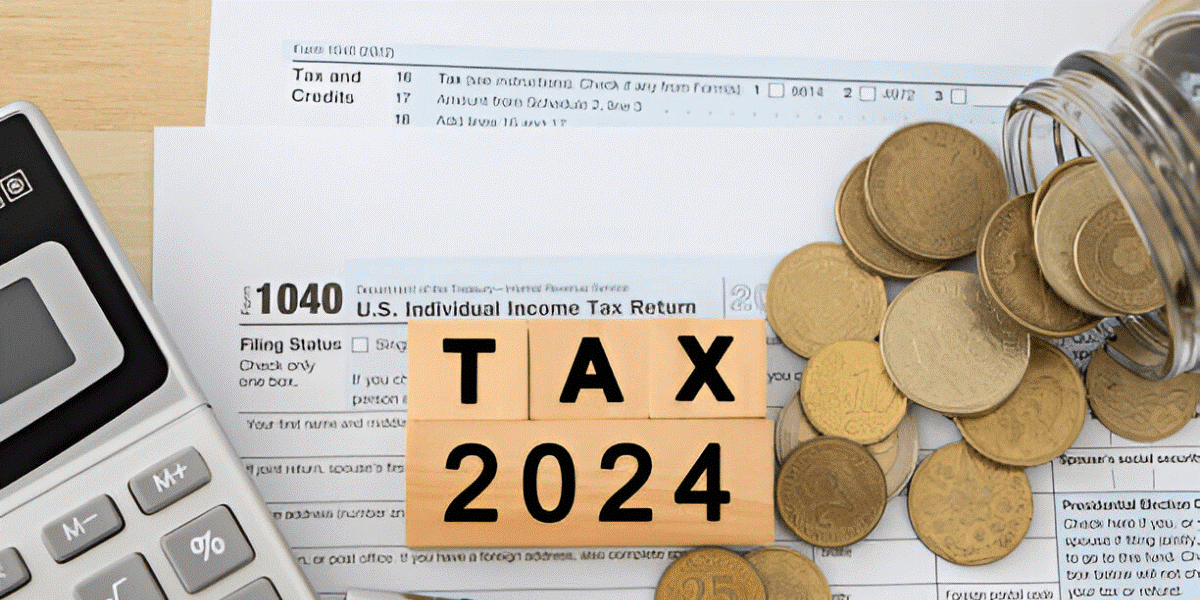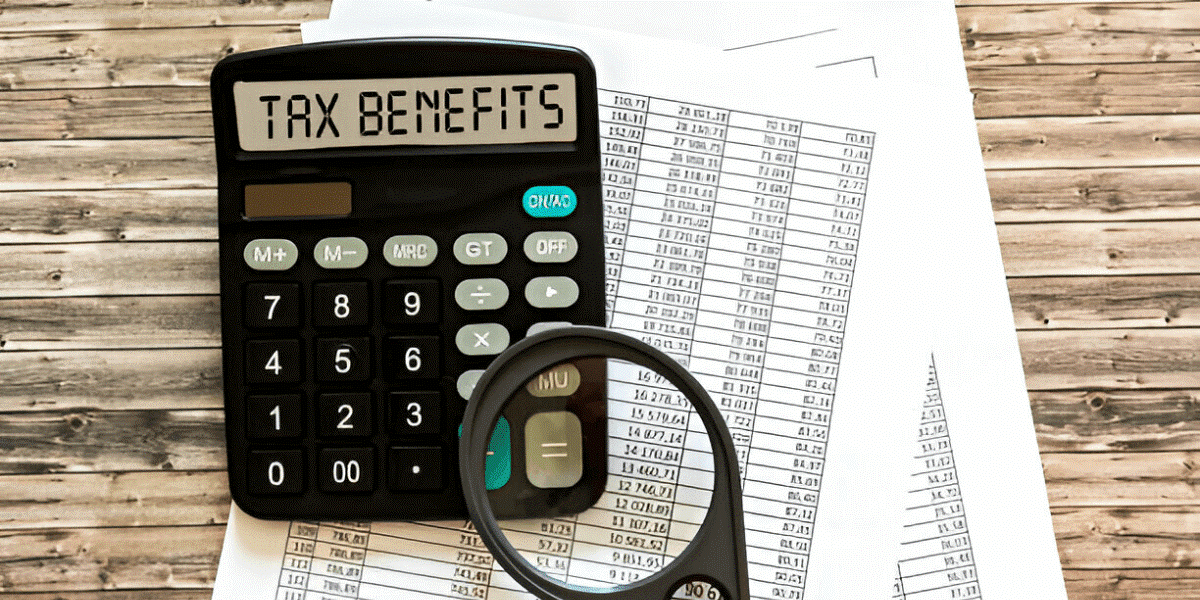The Ultimate Guide to Unlocking Tax Benefits with Investment Property in Australia
Understanding tax benefits for investment property
When it comes to investment property in Australia, the tax system offers a multitude of benefits that savvy investors can leverage to their advantage. One of the primary advantages is the ability to claim a wide range of deductions, which can significantly reduce the overall tax burden on your investment property income.
From interest payments on your mortgage to property management fees, insurance premiums, and even the costs of repairs and maintenance, these expenses can be claimed as tax deductions, effectively lowering your taxable income. Additionally, investors can take advantage of depreciation allowances, which allow them to claim deductions for the gradual wear and tear of the property and its fixtures over time.
Furthermore, investment properties can also provide opportunities for tax-efficient wealth creation through strategies such as negative gearing and capital gains tax planning. These strategies can help investors minimise their tax obligations while growing their property portfolios and building long-term financial security.
Negative gearing and its benefits
Negative gearing is a widely-used strategy among Australian property investors, and for good reason. It allows investors to claim the interest paid on their investment property loans as a tax deduction, effectively reducing their overall taxable income.
When the rental income from an investment property is less than the expenses associated with owning and maintaining the property, the investment is considered "negatively geared." In such cases, the investor can claim the difference between the rental income and expenses as a tax deduction, which can result in significant tax savings.
This strategy is particularly beneficial for investors who are in higher tax brackets, as the tax deductions can provide a larger reduction in their overall tax liability. Additionally, negative gearing can be an effective tool for building wealth over the long term, as the tax savings can be reinvested into the property or used to acquire additional investment properties.

Capital gains tax and how it affects investment property
When it comes to investment property, capital gains tax (CGT) is a crucial consideration for investors. Capital gains tax is a tax levied on the profit or "capital gain" made when an investment property is sold.
The amount of CGT payable depends on various factors, including the length of time the property was owned, any capital improvements made, and the investor's personal tax situation. Investors who hold their investment property for more than 12 months may be eligible for a 50% discount on their capital gains tax liability, which can significantly reduce the overall tax burden.
Careful planning and timing around the sale of an investment property can also help investors minimise their CGT obligations. For example, investors may consider strategies such as holding the property for the long term, making strategic capital improvements, or even using a self-managed super fund (SMSF) to hold the investment property and potentially benefit from more favorable tax treatment.
Depreciation and claiming deductions for investment property
One of the most valuable tax benefits for investment property owners is the ability to claim depreciation deductions. Depreciation allows investors to claim deductions for the gradual wear and tear and decline in value of the property and its fixtures over time.
This can include deductions for items such as carpets, appliances, fixtures, and even the building structure itself. By working with a qualified quantity surveyor, investors can maximise their depreciation deductions and unlock significant tax savings each year.
In addition to depreciation, investors can also claim deductions for a wide range of other expenses associated with their investment property, including interest payments on loans, property management fees, insurance premiums, and even the costs of repairs and maintenance. Keeping meticulous records and working closely with a tax professional can ensure that investors are taking advantage of all the available deductions and minimising their tax obligations.
Strategies for maximising tax benefits with investment property
Maximising tax benefits with investment property requires a strategic and proactive approach. One key strategy is to carefully plan the timing of property acquisitions and sales to minimise capital gains tax liability. This may involve holding onto a property for the long term, making strategic capital improvements, or even using a self-managed super fund (SMSF) to hold the investment property.
Another important strategy is to work closely with a qualified tax professional, such as an accountant or financial advisor, who can help investors navigate the complex tax landscape and identify all available deductions and incentives. This may include strategies such as negative gearing, depreciation claims, and the effective management of rental income and expenses.
Investors should also stay up-to-date with changes in tax legislation and regulations, as the rules and guidelines surrounding investment property tax benefits can evolve over time. By staying informed and adapting their strategies accordingly, investors can ensure that they are maximising their tax benefits and building sustainable, long-term wealth through their investment property portfolio.
Seeking professional advice for tax planning with investment property
When it comes to investment property and tax planning, seeking professional advice is crucial. A qualified tax accountant or financial advisor can provide invaluable guidance and expertise to help investors navigate the complex tax landscape and maximise their tax benefits.
These professionals can assist with a wide range of tax-related matters, including identifying all available deductions and incentives, developing strategies for minimising capital gains tax, and ensuring compliance with relevant tax laws and regulations. They can also provide valuable insights into the latest changes in tax legislation and help investors adapt their strategies accordingly.
By working closely with a tax professional, investors can gain a deeper understanding of the tax implications of their investment property decisions and develop a comprehensive plan to optimise their tax benefits. This not only helps to maximise their returns but also reduces the risk of costly mistakes or audits down the line. Investing in professional advice can be a wise and strategic move for any property investor looking to build wealth and minimise their tax obligations.
Case studies on successful tax planning with investment property
To illustrate the power of effective tax planning with investment property, let's examine a few real-world case studies:
Case Study 1: The Savvy Investor
John, a high-income earner, purchased an investment property in Sydney a few years ago. By working closely with a property tax accountant at Tax App, he was able to maximise his depreciation deductions and claim a range of other expenses, such as interest payments and property management fees. As a result, John was able to reduce his taxable income by over $20,000 each year, resulting in significant tax savings that he then reinvested into his growing property portfolio.
Case Study 2: The Retirement Planner
Sarah, a middle-aged professional, decided to use her self-managed super fund (SMSF) to purchase an investment property. By holding the property within her SMSF, Sarah was able to benefit from the more favorable tax treatment. Over the years, the rental income and property value appreciation within the SMSF have helped Sarah build a substantial retirement nest egg, putting her on a path to a comfortable and financially secure retirement.
Case Study 3: The Renovation Expert
Emma, a seasoned property investor, has a knack for identifying investment properties with renovation potential. By carefully planning and executing strategic renovations, she has been able to significantly increase the value of her properties and claim substantial depreciation deductions. This, combined with her effective use of negative gearing and other tax strategies, has allowed Emma to grow her portfolio while minimising her tax obligations and maximising her overall returns.
These case studies demonstrate the real-world impact that effective tax planning can have on the success of an investment property portfolio. By working with professionals, leveraging available deductions and incentives, and adopting strategic approaches, investors can unlock substantial tax benefits and build long-term wealth through their investment property investments.
Common mistakes to avoid when claiming tax benefits with investment property
While the tax benefits of investment property can be substantial, it's important for investors to be aware of the common mistakes that can undermine these advantages. Some of the most critical mistakes to avoid include:
1. Failing to keep accurate and comprehensive records: Meticulous record-keeping is essential for claiming deductions and demonstrating compliance with tax regulations. Investors who neglect this can miss out on valuable deductions or risk triggering audits.
2. Overlooking depreciation deductions: Many investors fail to take full advantage of the depreciation deductions available to them, often due to a lack of knowledge or the mistaken belief that their property is too old to qualify.
3. Misunderstanding the rules around negative gearing: Investors who do not fully understand the nuances of negative gearing may make mistakes in their calculations or fail to maximise the tax benefits.
4. Neglecting to seek professional advice: Attempting to navigate the complex tax landscape without the guidance of a qualified tax professional can lead to missed opportunities and costly errors.
5. Failing to stay up-to-date with changes in tax legislation: Tax laws and regulations can evolve over time, and investors who do not keep themselves informed may miss out on new deductions or face unexpected liabilities.
By being mindful of these common pitfalls and working closely with tax professionals, investors can ensure that they are maximising the tax benefits of their investment property while minimising the risk of mistakes or non-compliance.
Conclusion and key takeaways
In conclusion, the tax benefits associated with investment property in Australia are substantial and can have a significant impact on an investor's overall financial success. From claiming deductions for a wide range of expenses to leveraging strategies like negative gearing and capital gains tax planning, there are numerous opportunities for savvy investors to minimise their tax obligations and build long-term wealth.
The key takeaways from this comprehensive guide include:
1. Understanding the full scope of tax benefits available for investment property, including deductions for expenses, depreciation, and more.
2. Recognising the advantages of negative gearing and how it can reduce taxable income.
3. Developing strategies to manage capital gains tax, such as timing property sales and utilising self-managed super funds.
4. Partnering with qualified tax professionals to maximise deductions, stay compliant, and adapt to changes in tax legislation.
5. Avoiding common mistakes, such as poor record-keeping, Understanding tax benefits for investment property
Investing in property can be a lucrative endeavor, but it's crucial to understand the tax benefits that come along with it. In Australia, the government offers a range of incentives and deductions to encourage property investment and support the growth of the real estate market. As an investor, it's essential to familiarise yourself with these tax benefits to maximise your returns and minimise your tax liabilities.
One of the primary tax advantages of investment property is the ability to claim deductions for a wide range of expenses related to the property. These deductions can include interest payments on your mortgage, property management fees, repairs and maintenance costs, and even some legal and accounting fees. By carefully tracking and documenting these expenses, you can significantly reduce your taxable income and keep more of your investment earnings.
Additionally, investment properties can benefit from depreciation deductions, which allow you to claim a portion of the property's value as a tax deduction over time. This is particularly valuable for investors who have purchased newer properties or those who have undertaken significant renovations. By working with a qualified accountant or tax specialist, you can ensure that you're taking full advantage of these depreciation deductions and maximising your tax savings.
Disclaimer:
The content of these blog posts is intended to be of a general nature and should not be construed as tax or any other form of advice. We do not guarantee the accuracy or completeness of the information provided in these blog posts. It is imperative that you consult with a qualified professional, such as a certified accountant at Tax App, before taking any action based on the advice or information contained herein. Your specific financial and tax situation may require personalised guidance, and a professional consultation is recommended to ensure compliance with applicable laws and regulations.
Get Started with Us
Connect with Australia’s most innovative accountants today. Fill out our contact form, and let’s discuss how we can help you achieve your financial goals. Together, we’ll create a tailored action plan that maximises your tax savings.
Awards!
⭐⭐⭐⭐⭐






At Tax App, we offer Sydney Local, Online Accounting and Tax Services for individuals and small businesses in our community. Our technology and experienced team provide efficient and personalised solutions to streamline financial management. Trust us to be your partner in success.
Chartered Accountants
Liability limited by a scheme approved under Professional Standards Legislation
All Rights Reserved | Tax App Pty Ltd
Useful Links
Contact Us
Disclaimer: The content of this website is intended to be of a general nature and should not be construed as tax or any other form of advice. We do not guarantee the accuracy or completeness of the information provided in this website. It is imperative that you consult with a qualified professional, such as a certified accountant at Tax App, before taking any action based on the advice or information contained herein. Your specific financial and tax situation may require personalised guidance, and a professional consultation is recommended to ensure compliance with applicable laws and regulations.









